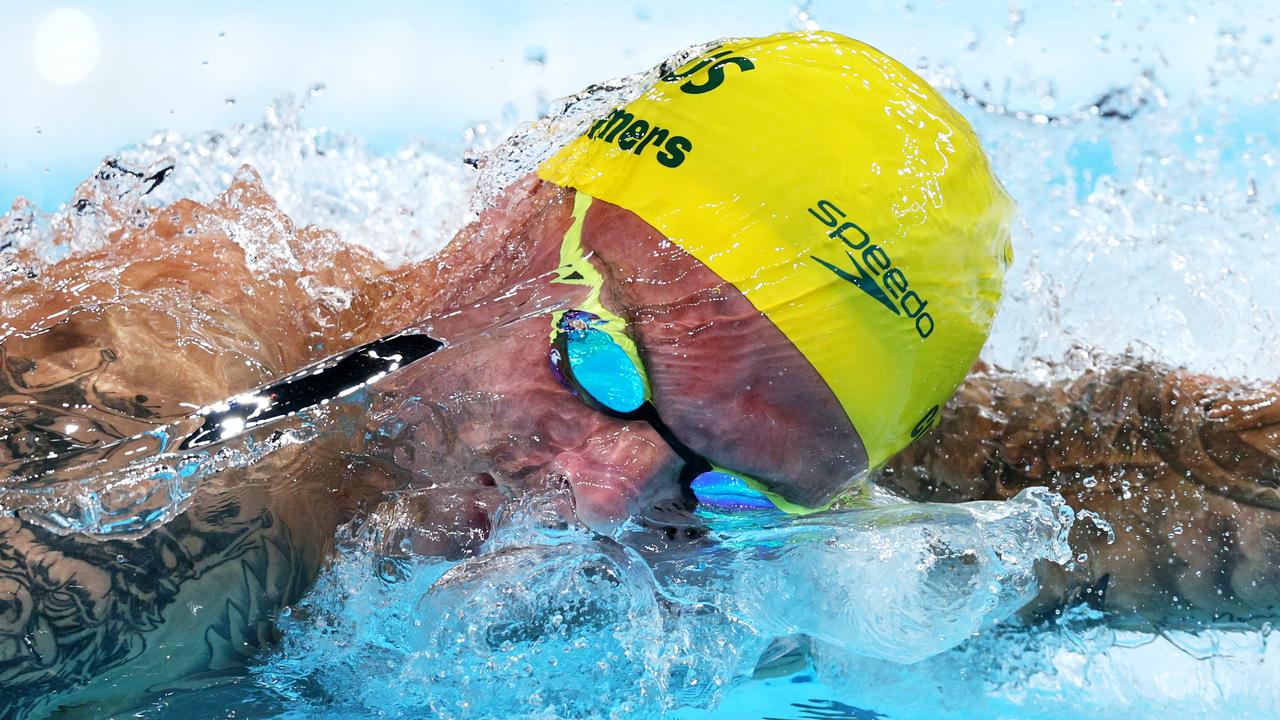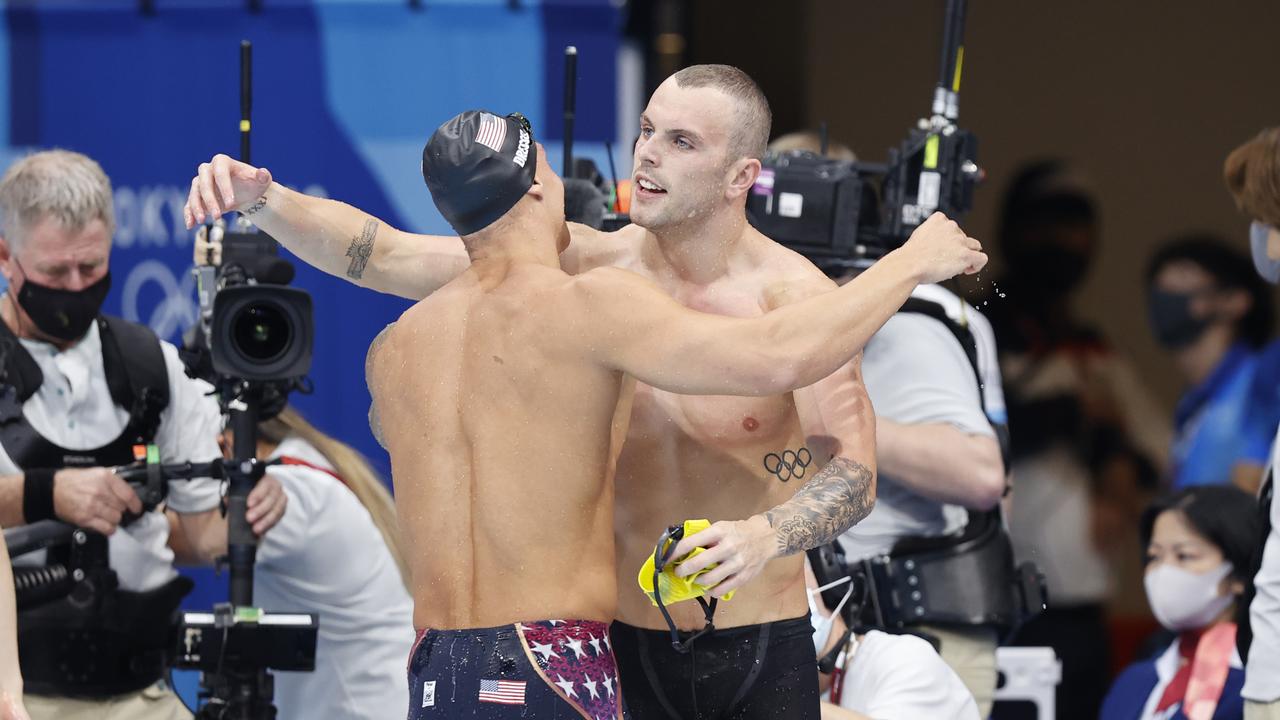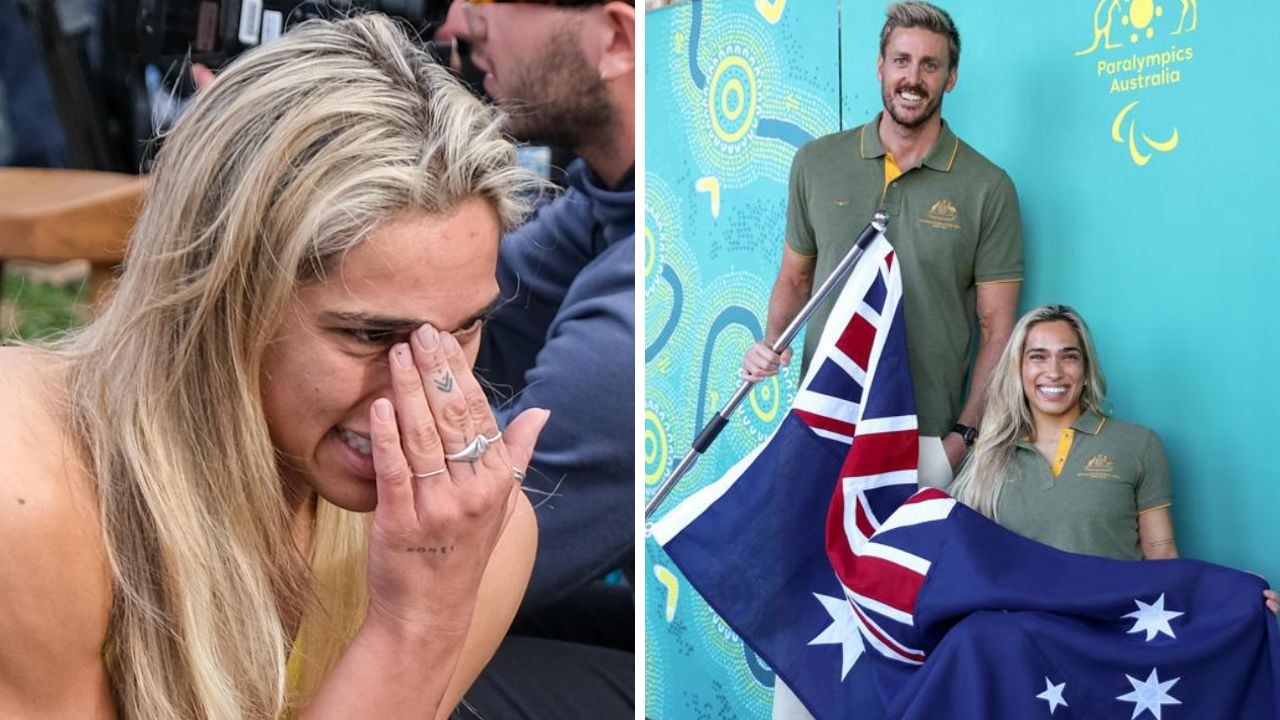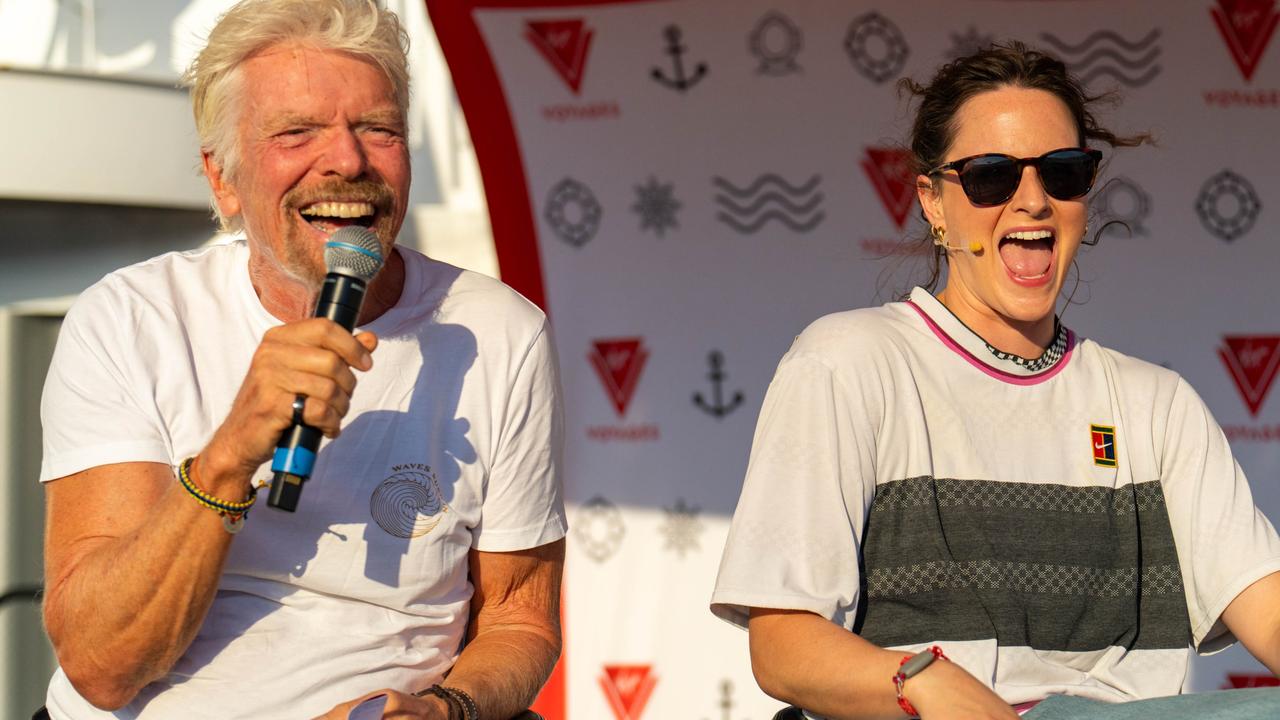Kyle Chalmers’ secret advantage as swimming history beckons for Aussie in 100m freestyle
The stage is set for Kyle Chalmers to swim into Olympic swimming history after he avoided the same mistake that cost him gold in Tokyo.

The stage is set for Kyle Chalmers to go down in swimming history if he wins gold again in the 100m freestyle in Paris on Thursday morning Australian time.
Chalmers, 26, is a veteran of the Dolphins team now and has won everything there is to win in swimming after bursting onto the scene to win gold in Rio as an 18-year-old.
The South Australian was the first Aussie man in 58 years to win the blue riband event — after Eamon Sullivan and James Magnussen fell agonisingly short in Beijing and London.
In Tokyo, American superfish Caeleb Dressel pipped Chalmers by just 0.06sec in an epic race between the two rivals.
But Dressel didn’t qualify to swim the 100m freestyle as an individual event in Paris — Jack Alexy and Chris Guiliano will represent the USA in the final.
The narrow defeat to Dressel was gut-wrenching for Chalmers, who claimed silver swimming out of lane 7 after not being quite on song in the Tokyo semi-finals.
But Chalmers has nailed it this time around, winning his semi and qualifying second fastest to book a spot in lane 5 for the final behind China’s world record holder Pan Zhanle.
The semis were so close, only 0.37 seconds separated Chalmers from Germany’s Josha Salchow who qualified in eighth.

Even better, because the Paris pool has the blocks at the opposite different end to Rio and Tokyo, Chalmers will be breathing towards Pan Zhanle as he charges down the second lap with his trademark back-end speed.
In Tokyo, Ian Thorpe lamented the fact Chalmers qualified in an outside lane and couldn’t see Dressel because he was breathing away from him, depriving him of that extra bit of motivation to hunt him down.
“Nothing he could have done, in the lane that he was in, could have been better,” Thorpe said after Chalmers swam his heart out for silver.
“Had he been in a different lane, the outcome may have changed. That’s all that can be said. You can’t change that.”
Thorpe even predicted before Tokyo that Chalmers breathing away from his biggest rival could be a disadvantage.
“The concern that I have for Kyle Chalmers is traditionally, he breathes on his right-hand side, which means on the way down, he will be able to see the rest of the field into Caeleb Dressel, which will help get him out in a faster split in the first 50,” Thorpe explained.
“He needs to be out faster than he was in the semi-final. If he continues to breathe on his right he won’t be able to hunt them down in the same way as he would normally, because he will be looking at lane eight.”

When he won in Rio, Chalmers swam out of lane 5 so if you believe in omens, that is a pretty good one.
Being in the middle lanes is extra important in the pool at La Defense Arena, which is slightly shallower than usual, making the water choppy in the second half of races in particular.
Chalmers has put together a sensational career — winning Olympic and Commonwealth gold, along with world long and short course titles.
His blistering 46.59sec anchor leg to help the Aussie 4x100m men’s relay take silver strengthened the argument that he’s the greatest relay swimmer of all time.
“I feel like I’m in as good a shape as I could possibly be in for Olympic Games, definitely better than what I was in Tokyo,” said the Australian.
“Every race I enter I back myself. I think I got to have the confidence, and belief in myself that I can.”

A second gold in the 100m freestyle would bookend Chalmers’ career and cement his legacy as one of the all-time greats.
Only four Australian men have won the 100m freestyle — Chalmers, Jon Hendricks in 1956, John Devitt in 1960 and Mike Wenden in 1968.
Four men have won the event at the Olympics twice — Americans Duke Kahanamoku and Johnny Weissmuller, Russian Alexander Popov, and Dutchman Pieter van den Hoogenband — have won the event at the Olympics twice.
Only Popov has been on the 100m freestyle podium at three consecutive Olympics. Kahanamoku made the podium in 1912, 1920 and 1924.
History beckons for Chalmers to join the greats of the pool.





